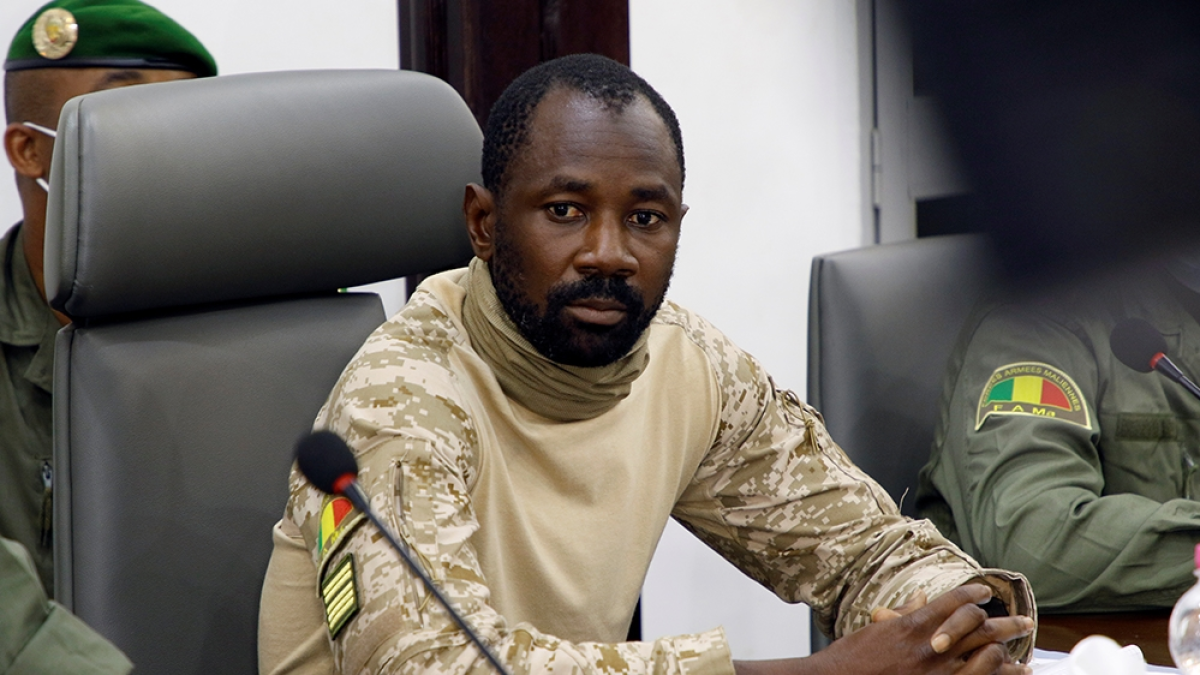Mali, a nation marked by political instability and insecurity, has plunged into further uncertainty following the dismissal of Prime Minister Choguel Kokalla Maïga and his government by military leader Colonel Assimi Goïta.
The decision reflects deepening tensions between the civilian and military arms of the transitional government, casting doubt over the junta’s commitment to restoring civilian rule.
A Rift Between Civilian Leadership and the Junta
The relationship between Prime Minister Choguel Kokalla Maïga and the junta, led by Colonel Assimi Goïta, had been deteriorating for months. Appointed in 2021 following a second coup against transitional president Bah N’Daw, Maïga initially worked in tandem with the military leaders. However, cracks in their partnership began to emerge over disagreements on governance and the timeline for transitioning back to civilian rule.
The junta, which seized power in two military coups in 2020 and 2021, had promised to hold elections by March 2024. This timeline was seen as a key milestone in Mali’s return to democracy.
Read : Kanye West Sold His Malibu Mansion at a Loss of $36 Million
However, the election was recently postponed indefinitely, a decision that Maïga openly criticized as unilateral and lacking transparency. Speaking to supporters, Maïga revealed that he, as prime minister, was not informed about the junta’s decision to delay the transition, calling it a breach of democratic principles and governance norms.
Read : List of Top Ten Hottest Countries In the world
His criticism highlighted a growing divide within the ruling administration. Pro-military groups, including the Collective for the Defence of the Military, responded with sharp condemnation, accusing Maïga of betrayal and urging his resignation. The mounting tension culminated in his dismissal by Colonel Goïta through a decree broadcast on state television.
The Challenges of Mali’s Transition to Civilian Rule
Mali’s transition to civilian rule has been fraught with challenges, and the removal of Maïga underscores the fragile nature of the country’s political landscape. The junta initially garnered popular support when it overthrew former President Ibrahim Boubacar Keïta in 2020, amid widespread protests against corruption, economic instability, and a worsening security situation.
However, that support has waned due to the junta’s failure to deliver on its promises, particularly in addressing the country’s deep-rooted issues of jihadist violence and separatist insurgencies.

The postponement of elections has added to public frustration, with many questioning the junta’s sincerity about handing over power to civilians. Critics argue that the appointment of General Abdoulaye Maïga as the new prime minister further consolidates military control, pushing the country away from its democratic aspirations.
While General Maïga is regarded as a loyalist to Colonel Goïta, his military background raises concerns about the junta tightening its grip on power.
The lack of transparency and clear communication about the transition has also fueled uncertainty. Maïga’s removal not only disrupts the civilian-military balance but also jeopardizes efforts to build trust among Malians and the international community.
His dismissal is viewed by some as a strategic move by the junta to silence dissent and maintain control, while others see it as a necessary step to stabilize governance amid mounting tensions.
What Lies Ahead for Mali and Choguel Kokalla Maïga
The sacking of Choguel Kokalla Maïga has sparked mixed reactions both within Mali and across the region. Supporters of Maïga believe that his departure could pave the way for him to become an opposition figure capable of challenging the junta. With a history of serving as a minister and running for president, Maïga’s political career might not end here.
Speculation is rife that he could contest the country’s top position whenever elections are held, leveraging his criticism of the junta’s governance to rally public support.
On the other hand, detractors view Maïga’s actions as undermining the transition process. Pro-military groups have labeled his outburst as betrayal, arguing that his removal was necessary to restore order within the government.
These differing perspectives reflect the broader divisions in Malian society, where the initial optimism surrounding the junta’s rise has given way to growing discontent.

For the transitional government, Maïga’s dismissal raises questions about its ability to navigate the delicate path toward civilian rule. The appointment of General Abdoulaye Maïga signals a potential shift in strategy, with the junta prioritizing loyalty and military discipline over civilian collaboration. However, this approach risks alienating segments of the population that had hoped for a more inclusive and transparent transition.
Mali’s ongoing struggles with jihadist violence and separatist movements further complicate the situation. The country’s security challenges remain a significant barrier to political stability, and the junta’s focus on consolidating power may hinder its ability to address these issues effectively.
The dismissal of Prime Minister Choguel Kokalla Maïga marks a critical juncture in Mali’s turbulent journey toward democracy. The rift between the civilian leadership and the junta underscores the complexities of governance in a nation grappling with political instability, security threats, and economic hardship.
As the transitional government continues to face domestic and international scrutiny, the path forward remains uncertain. For Malians, the dream of a return to civilian rule and democratic governance appears increasingly elusive. For Choguel Kokalla Maïga, his removal could either signal the end of his political career or the beginning of a new chapter as a challenger to the junta’s authority.
The international community will be watching closely, as Mali’s stability has implications for the broader West African region. Whether the junta can deliver on its promises or whether Mali will remain trapped in a cycle of coups and conflict is a question that only time will answer.
let’s enjoy few years on earth with peace and happiness….✍🏼🙏

